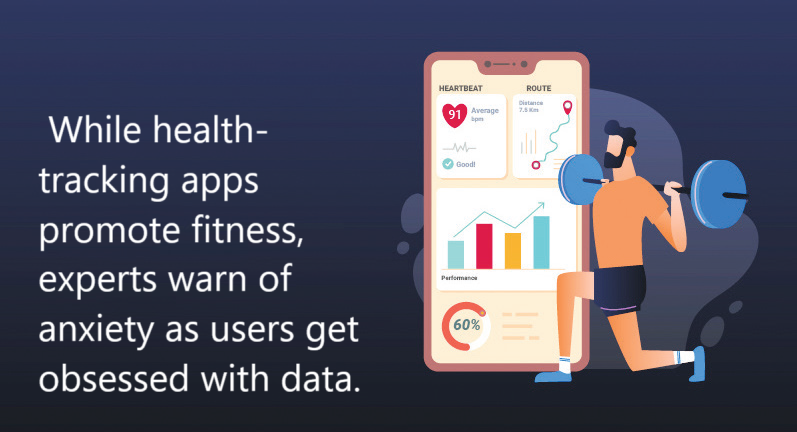
Health apps: Boosting wellness or more anxiety?
NT | Bengaluru
Health tracking apps have become a significant part of daily life in Bengaluru, offering users the ability to monitor everything from steps and calories to heart rates and sleep patterns. While these apps have brought numerous benefits by encouraging healthier lifestyles, experts are now raising concerns about the growing link between excessive app usage and health anxiety. Bengaluru, a city with a high smartphone penetration rate, has seen a surge in the use of health apps. This, coupled with the influence of social media and fitness influencers, has led to an increase in individuals obsessing over health metrics.
While specific data on health anxiety related to these apps is scarce, global studies indicate a clear trend: constant use of these tracking tools can exacerbate anxiety, particularly when users develop unhealthy obsessions with their health data. Speaking to News Trail, Supraja TJ, Founder of Mind Tattva and a counselling psychologist, explains, “The surge in health tracking apps has reshaped our approach to wellness, allowing us to monitor steps, sleep, and even heart rates. However, for some people, this constant tracking can lead to health anxiety where frequent health checks amplify obsessive worries.” Supraja notes that, psychologically, health anxiety often stems from perfectionism or a heightened sensitivity to bodily sensations.
"This anxiety can lead to chronic stress, diminished self-confidence, and an overwhelming need for reassurance." Moreover, the constant stream of health data can be overwhelming. Minor fluctuations in health metrics might be interpreted as signs of severe illness, which only fuels worry. Supraja advises, “If you find yourself checking metrics or feeling anxious over small fluctuations, it might be time to rethink your approach. Limit app usage to once daily or review your data weekly, focusing on general trends. Practicing mindfulness techniques can help reduce anxiety.” Dr Sheetal Lekhani, Assistant Professor of Psychology and licensed clinical psychologist at Nimhans, also points out the detrimental effects of these apps on users’ mental well-being.
"One of the main concerns is that health tracking apps can create a sense of perfectionism and unrealistic expectations," she says. "Users often become obsessed with achieving certain metrics, such as a specific number of steps or calories burned, and feel anxious if they fall short of their goals." This, Dr. Lekhani explains, can lead to feelings of inadequacy and even depression. To mitigate health anxiety, Dr. Lekhani suggests setting realistic goals, focusing on positive progress, and taking regular breaks from health-tracking apps.
 English daily published in Bengaluru & Doha
English daily published in Bengaluru & Doha






